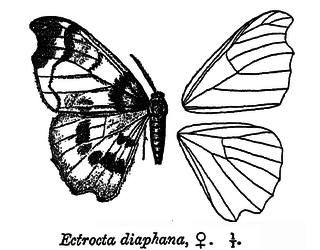 W
WAmesia sanguiflua is a moth of the family Zygaenidae. It is found in northern India, Myanmar, Indochina, Malay Peninsular, Sumatra, Java, and Taiwan.
 W
WAsota heliconia is a moth in the family Erebidae. It is found from the Indo-Australian tropics east to Queensland and the Solomons.
 W
WBrahmaea wallichii, also known as the owl moth, is a moth from the family Brahmaeidae, the Brahmin moths, and one of its largest species. It is found in the north of India, Nepal, Bhutan, Myanmar, China, Taiwan, and Japan. The owl moth is nocturnal. The wingspan is about 90–160 millimetres.
 W
WCerura menciana is a moth of the family Notodontidae. It is found in Japan, Korea, China, Burma and Taiwan.
 W
WGaraeus apicata is a moth in the family Geometridae. It is found in the north-eastern Himalaya, Burma, Sumatra, Borneo and Taiwan.
 W
WJuxtarctia multiguttata is a polymorphic tiger-moth in the subfamily Arctiinae, endemic for Himalayas. It is known from India: north-west Himalayas, Sikkim, Assam; Nepal; Bhutan; Myanmar; China: Tibet within western slopes of the Himalayas; Indochina.
 W
WRondotia diaphana is a moth in the family Bombycidae. It was described by George Hampson in 1893. It is found in China, Myanmar, India and Vietnam.
 W
WTetridia is a monotypic moth genus of the family Crambidae described by William Warren in 1890. Its single species, Tetridia caletoralis, was described by Francis Walker in 1859. It is found in China, northern India, Sri Lanka, Myanmar, Malaysia, Papua New Guinea, Japan, Taiwan and Australia, where it has been recorded from Queensland.